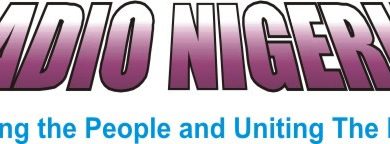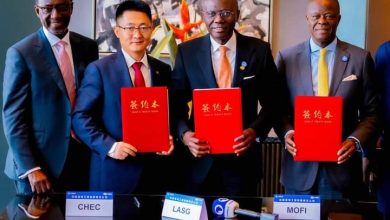
By Fabian Anawo
The Association of Community Pharmacists of Nigeria, ACPN, Edo State chapter wants the National Insurance Act reviewed to include the participation of community pharmacists to offer quality health care services.
They made the demand in a communique of the Health Insurance Summit held in Benin City, the Edo State capital.
The ACPN pointed out that the
major credibility and integrity issues arising from Nigeria’s brand of Health Insurance is the non-incorporation of Community Pharmacies which are the most accessible and affordable link in the value chain of healthcare.
The communique posits that the purpose of any Health Insurance programme was the provision of affordable and cost-effective access to quality healthcare for enrollees which eliminates out-of-pocket expenses and expresses worry that the National Health Insurance amendment Act 2022 laid emphasis on only the formal sector which accounts for less than 15% of the population.
It says that the Community Pharmacist is in a vantage position to facilitate insurance payments, resolve coverage denials, serve as representatives to help select favourable schemes, and educate, sensitise and mobilise enrollees.
However, the ACPN frowned at the modus operandi of the current scheme which empowers the Physician to be the Prescriber and Dispenser of drugs contrary to global best practices which forbid a prescriber or dispenser to derive an undue economic advantage in the totality of drug management mechanisms.
It argues that value addition is eroded because Physicians who prescribe, only dispense drugs in the stock of their clinics which often is not the best drug of choice from a clinical perspective.
It also frowned at the unlawful payment mechanism of global capitation which is structured to merge capitation fees for General Practice Physicians (Primary Providers) and fees for service for secondary providers and tertiary providers effectively negating the lawful payment mechanisms to all other non-physician Health workers including Pharmacists who are prevented from carrying out their professional duties of drug dispensing and counseling contrary to the provision of PPA Cap 535 LFN 1990.
The Summit condemned the indiscriminate capitating of facilities in the Secondary and Tertiary bracket which is a violation of the norm that places capitation payment on only primary care facilities saying that it undermines the capacities of Private Sector players in a conundrum that limits the growth of the Nigerian Health System in all ramifications.
It says that the aberration of indiscriminate capitation also causes a distraction from the core statutory responsibilities of Training, Research, and Specialized care in the Teaching Hospitals which are forced to manage clinical disease states like malaria which accounts for over 65% of all clinical visitations in Nigeria.
It called on the government to monitor Health Management organizations,
HMOs, which have service provider networks from handing over strategic opportunities to cater for enrollees to their Provider Networks as hospitals with a full complement of all professional services including Pharmacy, Medical Laboratory, Radiography, Physiotherapy, and others.
It advised the government to collaborate with the Pharmaceutical Manufacturing Group of the Manufacturers Association of Nigeria and the Association of Industrial Pharmacists of Nigeria to produce bulk generic packs of drugs which will be negotiated to make the totality of service more affordable and accessible to consumers of Health instead of using branded drugs which are expensive.
The Summit advised the government to leverage on findings in new studies by Columbia’s Mailman School of Public Health which confirms Pharmacists are stepping into roles previously held by Primary Care Physicians and other healthcare providers and do the needful in the interest of patients.
It says research has shown that there is a better health outcome when Pharmacists get involved with patient counseling and intervene with chronic disease management and care.
It argued further that the Ease of Access Pharmacists has to patients has positioned the Pharmacy profession towards the incorporation of Advanced Health Promotion activities and involvement in various stages of awareness campaigns.
The Summit canvassed exploration of the extended scope of practice for Community Pharmacies in the areas of Prevention and control of locally endemic diseases, Immunisation services, and treatment of communicable and non-communicable diseases.
Others are health education, Maternal Child Health, Family Planning, and
supply of essential medicines and basic nutritional supplements.
The Summit recommended that the Federal Government, especially the Edo State government should immediately start the process of accrediting Community Pharmacies into the Health Insurance Scheme to provide Primary Health care services and offer Pharmaceutical Health care services to patients under the scheme that does not patronize Government institutions.
It also recommended the incorporation of Mobile Health Technology (M-Health) because of the prospective benefits of achieving Universal Health Coverage by improving access to health services, particularly for those in hard-to-reach communities, enhancing knowledge and access to health information for all providers.
It suggested the use of Unstructured Supplementary Service Data (USSD) code because they are often simple, cheap, and have wider coverage, and Mobile apps which are already being deployed by a few of the HMOs with considerable success, Mobile Apps can be made to be free, simple, visual and functional without internet connectivity.
The communique which was signed by the Chairman, ACPN, Edo State, Mr. Duke Otite advised the leadership of ACPN and the Pharmaceutical Society of Nigeria to begin to activate the process of establishing new generation but friendly HMOs which will ensure that Global best practices are entrenched in the Health System of the country.
This according to it is because Pharmacists play a major primary care role that is enhanced by their accessibility and can be further amplified with a broader scope of practice, technology integration, Health Insurance, and remuneration commensurate with this role, adding that the tenacity of a country’s healthcare system is fundamentally driven by the strength of its primary care.
Discover more from Radio Nigeria Lagos
Subscribe to get the latest posts sent to your email.




